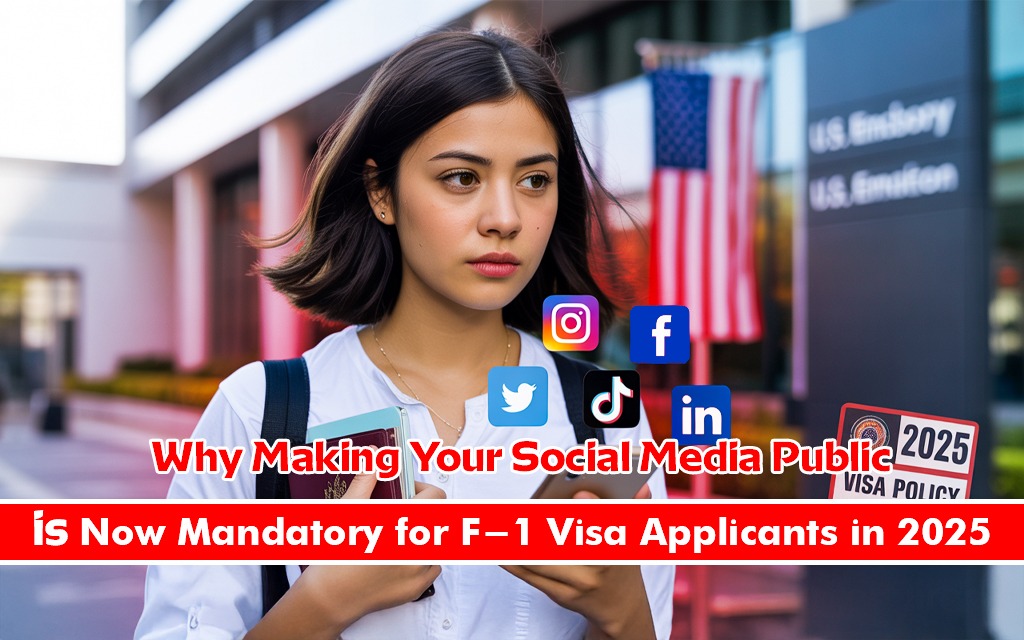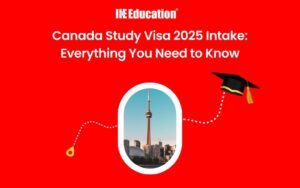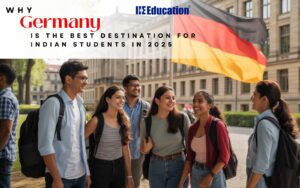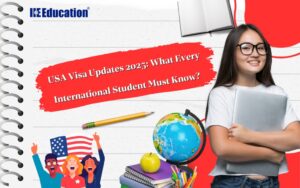In 2025, the United States has introduced a new law requiring social media vetting for F-1 visa applicants, which marks a significant shift in how international students prepare for studying in the USA. While this may sound intimidating at first, understanding what this means and how to prepare for it can make the process smooth and even empowering.
As always, the dream of studying in top U.S. universities remains alive and achievable — but it’s more important than ever to be aware of how your digital presence can affect your F1 visa journey.
Understanding the New Social Media Vetting Rule
The U.S. government has expanded its immigration policies to include social media vetting as a part of background checks for all non-immigrant visa categories — and the F1 visa is no exception. As of 2025, applicants must list all social media handles used in the last five years on their DS-160 form.
This includes platforms such as:
- Twitter/X
- TikTok
- YouTube
- And even lesser-known forums and apps
The goal is to ensure national security and to evaluate the online behavior of applicants. It’s crucial to note that this policy doesn’t target international students — it’s a general effort to maintain transparency and trust in the US student visa process.
Why This Matters: Visa Delays and Processing Time
One of the major side effects of this new vetting system is the potential for student visa delays. In some cases, if inconsistencies or red flags are found in an applicant’s online activity, the visa processing time in 2025 may extend, or additional background checks may be initiated.
However, this doesn’t mean your visa will be denied automatically. In fact, if your online presence aligns with your application and maintains a neutral or positive tone, there is little to worry about.
Many F1 aspirants are now asking:
“Why is my F1 visa delayed in 2025?”
The answer could lie in a mismatch between declared and discovered online activity, or perhaps not declaring social accounts at all.
Can Social Media Really Affect Your US Student Visa?
Yes, it can — but only in specific circumstances.
Here are a few examples that may raise concerns:
- Inflammatory political content or hate speech
- Posts promoting violence or illegal activity
- Involvement in extremist online groups
- Discrepancies between what you’ve declared in your application and your online activity
On the other hand, posting academic achievements, sharing student life experiences, and showing enthusiasm for education in the U.S. is actually a positive indicator.
So if you’re wondering “Can social media affect my US student visa?”, the answer is yes — but in most cases, it’s your chance to show credibility, personality, and academic intent.
How to Prepare Your Social Media for F1 Visa Approval
This leads us to an important question:
“How to make social media F1 visa friendly?”
Here’s a checklist you can follow:
✅ Make Your Profile Public, Not Private
As of 2025, making your social media profiles public has become a mandatory requirement for F-1 visa aspirants. The U.S. government now closely reviews applicants’ online presence to ensure transparency, consistency, and alignment with the information provided in the DS-160 form. Private, deactivated, or deleted accounts may raise red flags during background checks and could potentially delay or negatively impact your visa approval. Keeping your profiles public — with clean, honest, and positive content — is essential for building trust and demonstrating your credibility as a genuine student. It’s best to leave some activity visible — particularly academic, cultural, and family-related posts.
✅ Remove or Archive Problematic Content
Take time to review your profiles and delete anything that might go against U.S. values or government policies. This includes memes, jokes, or shares that could be misunderstood.
✅ Keep Your Bio and Posts Consistent with Your Visa Intent
If your F1 visa interview mentions your intent to study Computer Science, your LinkedIn and Instagram posts showing coding bootcamps or interest in tech will support that. Aligning your story is key.
✅ Avoid Contradictions
If your DS-160 social media section lists Twitter, but you also have a hidden Reddit account where you’ve posted anonymously, it can raise a red flag. Be honest and consistent.
✅ Don’t Rush to Deactivate Everything
There’s a myth that deleting social media avoids scrutiny. In reality, visa rejection due to social media may happen if the applicant appears to be hiding something.
Social Media Etiquette Before Your Visa Interview
Here are some additional tips about what to avoid posting on social media before your F1 visa interview:
- Avoid strong political opinions (especially anti-US)
- Don’t joke about immigration, terrorism, or illegal activities
- Avoid posting anything controversial about religion or ethnicity
- Don’t showcase luxury lifestyles that don’t match your financial proof
Instead, post about:
- Your academic journey
- Achievements like TOEFL/IELTS scores or admission letters
- Travel plans to study abroad
- Aspirations to contribute to your home country post-study
Why the US Government Cares About Social Media
This law isn’t meant to scare applicants — it’s a precaution. The U.S. values its international student community, and most F1 visa applicants are welcomed without issues.
However, in today’s digital world, your online presence is an extension of your identity. Just like your financial documents and academic transcripts, your social media accounts are part of your profile.
Understanding how US embassies check your social media will help you be more confident and transparent. Think of it not as surveillance, but as a security screening, much like airport checks before boarding a flight.
Turning Social Media Into a Positive Tool
Yes, it’s possible!
Your profiles can actually work in favor of your F1 visa approval. Here’s how:
- Share photos of you participating in academic events or hackathons
- Highlight volunteer work or projects with NGOs
- Post about university offers and gratitude messages
- Comment respectfully in forums and groups about U.S. education
If you’re applying in 2025 and concerned about your F1 visa delay due to DS-160 issues or social media background checks, consider working with experienced visa consultants who understand these changes.
IIE Education understands the evolving requirements of the F-1 visa process, including the new emphasis on social media vetting. Our expert counselors provide personalized guidance to help students prepare their online presence, ensuring it aligns with visa expectations and supports their academic goals. From reviewing your DS-160 social media section to advising on what content to keep public, we help you present a credible and transparent profile. With IIE Education, you don’t just get visa support — you get a team that helps you navigate every detail, including digital readiness, with confidence and clarity.
Conclusion: Don’t Fear the Process — Understand It
The introduction of social media vetting for F1 visa applicants in 2025 might seem like an extra hurdle, but it’s truly manageable with the right approach.
Think of it this way: just as you prepared your academic records, SOP, and interview answers, you now need to ensure that your digital identity aligns with your educational goals.
Remember, your goal of studying in the U.S. is valid, achievable, and respected.
With the right awareness, a proactive mindset, and clean, transparent online behavior — your visa journey will stay on track.
💡 Key Takeaways
- Be honest and consistent with your social media accounts
- Avoid deleting or hiding everything suddenly
- Review your posts, bios, and public activity
- Prepare your DS-160 social media section carefully
- Let your digital presence support — not contradict — your F1 visa application
So, if you’re ready to chase your American dream, don’t let fear of vetting stop you. Instead, embrace this new F1 visa landscape with confidence, preparation, and clarity.
Your future is just a profile check away — make it count!
How IIE Education Can Help You Prepare for Social Media Vetting
At IIE Education, we understand that the evolving landscape of U.S. visa policies — especially the mandatory social media vetting for F-1 visa aspirants — can feel overwhelming. That’s why we go beyond traditional visa support by guiding our students on how to present a credible, consistent, and compliant digital profile.
Here’s how we help:
🔍 Personalized Social Media Review
Our experienced counselors conduct a confidential audit of your social media profiles, helping you identify and remove content that may be flagged during the visa process. We’ll also guide you on what to showcase to reflect your academic goals and intent truthfully.
📄 DS-160 Form Assistance
Filling out the DS-160 form correctly — especially the social media section — is critical. We provide step-by-step support to ensure every detail is accurate, including proper listing of your online handles across platforms like Instagram, Facebook, LinkedIn, and others.
🎓 Training for Visa Interviews
Your F-1 visa interview may include questions about your online presence. IIE Education helps you prepare smart, confident responses that align with your application and reflect transparency.
📱 Workshops on Digital Etiquette
We regularly conduct digital readiness workshops where students learn about responsible social media behavior, what not to post before their visa, and how to use their online presence to support their U.S. education journey.
✅ Proactive Guidance = Fewer Delays
Our goal is to help you avoid unnecessary student visa delays due to minor mistakes like undeclared social accounts or conflicting online posts. With IIE Education’s guidance, your application stays strong — both on paper and online.
Your dream of studying in the U.S. deserves a clean path forward — and we’re here to clear it for you. Let IIE Education be your trusted partner in navigating this new digital requirement with confidence and ease.
📌 Frequently Asked Questions (FAQs)
1. Is it mandatory to make my social media profiles public for an F-1 visa in 2025?
Yes, under the updated U.S. visa policies for 2025, it is strongly recommended — and in some cases, expected — that your social media profiles are publicly accessible during the F-1 visa review process. Hidden or deactivated accounts may lead to delays or raise concerns during background checks.
2. Which social media platforms are checked by the U.S. Embassy?
The most commonly reviewed platforms include Facebook, Instagram, Twitter (X), TikTok, LinkedIn, YouTube, and any other sites where you’ve had an account in the past five years. These should be listed in the DS-160 social media section accurately.
3. What kind of posts should I avoid before my F-1 visa interview?
Avoid content related to:
- Hate speech or offensive language
- Political extremism or anti-government sentiments (especially against the U.S.)
- Violence, drugs, or illegal activity
- Contradictory information compared to your visa application
4. What should I include on my social media to strengthen my F-1 visa profile?
Post about:
- Your academic achievements or goals
- University acceptances or campus visits
- Language test scores (TOEFL, IELTS, etc.)
- Volunteer work or extracurricular involvement
- Your excitement about studying in the U.S.
5. What happens if I forget to mention a social media handle on the DS-160 form?
Omitting any active or previously used social media handles can be viewed as dishonesty. This may result in your visa being delayed or even denied. Always disclose all relevant handles used within the past five years.
6. Do U.S. visa officers check my messages or DMs?
No. The vetting typically includes reviewing your public posts, bios, photos, and comments — not private messages. However, if your account is flagged for additional scrutiny, deeper checks could be conducted by authorized departments.
7. How can I get help reviewing my online presence before applying for a visa?
You can consult with visa experts like IIE Education, who guide students step-by-step — from reviewing social media content to preparing for interviews — to ensure you meet the F-1 visa requirements confidently.





